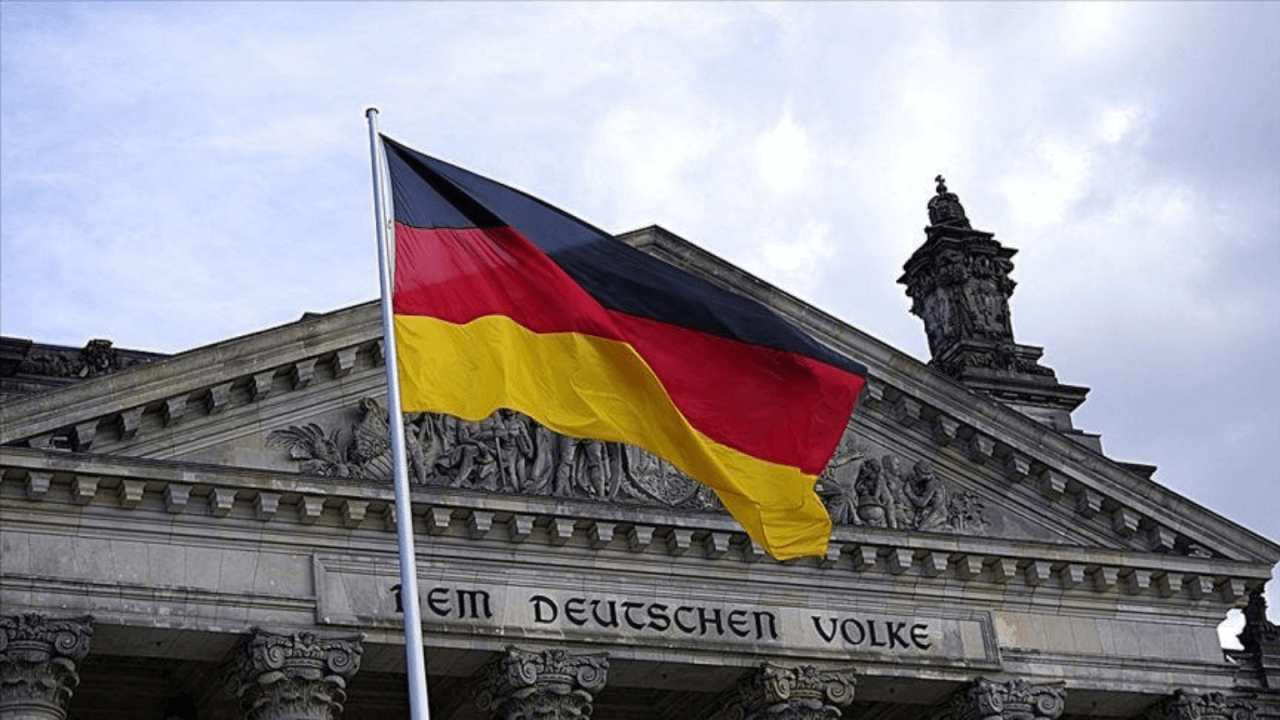* This extended summary is prepared for the PhD thesis[1] that was successfully defended at the School of Graduate Studies, Department of International Relations, Kadir Has University, in January 2025.
In the international system, states face a dual struggle encompassing both material and non-material dimensions of security. On the one hand, they must safeguard the tangible aspects of their existence, including political borders, military capabilities, human resources, and economic stability, which collectively ensure their physical survival (Waltz, 1979). On the other hand, states must address intangible needs critical for their ontological security; a sense of stability, self-consistency, and identity that allows them to navigate an uncertain international environment (Mitzen, 2006; Steele, 2008).
This dissertation focuses on Israel as a case study to examine how states pursue ontological security, the role of recognition in maintaining it, and the ways in which narrative constructions, identity, and foreign policy intertwine to mitigate existential anxieties. It argues that Israel’s foreign policy cannot be fully understood solely through traditional security studies emphasizing material capabilities, power, deterrence, or national interest calculations (Walt, 1987). These frameworks often fail to explain Israel’s persistent pursuit of recognition as a Jewish and democratic state and its complex efforts to manage both physical and ontological insecurities simultaneously.
Instead, ontological security theory provides a more nuanced lens for understanding state behavior by highlighting the inseparable link between identity, recognition, narrative, and agency (Wendt, 1999; Flockhart, 2016). Furthermore, the dissertation underscores that states are not only security seekers but also ontological security maximizers. They seek to preserve identity, narrative continuity, and agency while navigating a socially constructed international system (Mitzen, 2006; Flockhart, 2016).
Israel exemplifies this dual pursuit, balancing physical security needs with the ongoing requirement for recognition and identity affirmation. These dynamics highlight that foreign policy is as much about preserving the coherence of the Self as it is about survival or power. States with unresolved ontological insecurities may act defensively, prioritize alliance formation, or adapt narratives strategically to safeguard identity and legitimacy.
While Israel serves as the primary focus, the conceptual framework developed in this research is applicable to other states, as all states rely on narratives, identity, and social interactions to maintain their ontological security, manage anxieties, and navigate through foreign policy issues. The dissertation also emphasizes the use of foreign policy as a key instrument to maintain ontological security. Diplomatic engagement, strategic and economic partnerships, and peace agreements function not only as means to achieve physical security but also as mechanisms to stabilize identity, affirm legitimacy, and mitigate existential anxiety.
Israel’s ontological insecurity originates from the historical experiences of Jewish persecution, marginalization, and existential threat, most notably the Holocaust and centuries of Jewish diaspora statelessness. These experiences created deep-seated anxieties about survival and belonging, which continue to influence Israeli identity and foreign policy (Ganor, 2015; Shain & Barth, 2003). While the establishment of Israel in 1948 alleviated some physical insecurities by providing a territorial homeland, ontological insecurity persisted due to the lack of full recognition by its neighbors and segments of the international community (Bar-Tal, 1998; Waxman, 2006).
Israel’s ongoing efforts to secure recognition reflect its quest for both thin recognition — the formal acknowledgment of statehood — and thick recognition — the affirmation of its unique identity, history, and values within the international system (Wendt, 2003). For Israel, achieving thick recognition is essential to ontological security because it validates the state’s Jewish and democratic identity and ensures continuity of the Self within the international community. The lack of thick recognition contributes to persistent feelings of isolation, delegitimization, and vulnerability, driving Israel’s continuous diplomatic outreach and strategic maneuvering.
The dissertation also demonstrates that Israel’s pursuit of ontological security necessitates narrative adaptation to balance physical and non-material security needs. Historical and contemporary narratives are continuously modified to preserve a coherent identity while accommodating geopolitical realities (Hopf, 1998; Mitzen, 2006). The adaptation of narratives is visible in Israel’s attempts to reconcile its Jewish and democratic identities, maintain legitimacy in contested regions, and negotiate recognition from the international community without compromising its core principles. Israel’s foreign policy, therefore, can be interpreted as a deliberate exercise in narrative performance, wherein diplomatic, strategic, and economic actions reinforce a sense of ontological security while addressing both external threats and internal identity tensions.
This dissertation identifies three key metanarratives that shape Israel’s worldview and influence its foreign policy decisions: exceptionalism, the ghetto mentality, and the Masada complex. Identifying metanarratives is necessary as they shape how a state perceives the world, interprets threats, and justifies its foreign policy actions, providing a cognitive framework that guides behavior and maintains a coherent identity. They reveal the underlying stories and collective memories that influence decision-making, helping explain patterns of continuity and change in a state’s pursuit of ontological security. Exceptionalism reflects Israel’s perception of a unique mission and identity, framing itself as a morally and historically distinct actor in the international system (Bar-Tal, 1998). It represents a positive worldview, emphasizing Israel’s potential contributions and shared values with other states, which supports cooperation, alliances, and diplomatic engagement. The ghetto mentality emphasizes a historical consciousness of vulnerability, persecution, and isolation, influencing Israel’s defensive posture (Shain & Barth, 2003) and its constant search for security, recognition, and trustful allies or “neighbors.” The Masada complex, rooted in the collective memory of historical resistance against annihilation, reinforces Israel’s survival instinct, and determination to protect the state and preserve a coherent national identity in the face of existential threats (Sandler, 2010). While these metanarratives are specific to Israel, the dissertation stresses that other states similarly construct metanarratives based on history, trauma, collective memory, and sociocultural context, which in turn shape their foreign policy behaviors and identity politics.
A key conceptual contribution of this research is the distinction between Israel’s pursuit of neighbors rather than formal alliances. Unlike alliances, which often involve binding commitments, shared defense obligations, and institutionalized agreements, the concept of neighbors emphasizes flexible, context-sensitive relationships that provide recognition, legitimacy, and reassurance without constraining Israel’s agency and options. While formal alliances are primarily designed for tangible security guarantees, relationships with neighbors act as dynamic, flexible mechanisms that help Israel manage existential anxiety, sustain identity narratives, and maintain a sense of continuity and coherence in a challenging environment. By interacting with multiple layers — near, periphery, far, and institutional — Israel strengthens its ontological security through recognition, relational stability, and agency, rather than relying solely on formalized alliances that could constrain its autonomy.
Accordingly, Israel’s foreign policy strategy can be understood through its layered approach to relationships with its near neighbors, periphery or moderate neighbors, far neighbors, and international institutions. Near neighbors, such as Egypt, Jordan, and other immediate regional actors, are central to Israel’s ontological and physical security, offering a sense of predictability, routine, and acknowledgment in its immediate environment. These relationships provide reassurance that Israel’s identity and sovereignty are recognized locally, even amid persistent regional tensions. Periphery actors — states or groups outside the immediate neighborhood with whom Israel shares strategic interests — have historically been leveraged to counterbalance hostile regional dynamics, as demonstrated by the Periphery Doctrine (1950s), the Abraham Accords (2020) and similar initiatives. These actors expand Israel’s network of recognition and legitimacy in a broader regional context without requiring formalized defense commitments. Far neighbors, mainly Western democracies such as the United States, United Kingdom, France, and Germany, provide critical support in terms of military assistance, diplomatic validation, and integration into global norms (Ben-Ami, 2005; Stein, 1999). Their recognition functions as an affirmation of Israel’s Jewish and democratic identities creating legitimacy on a global scale, offering reassurance that Israel’s existence and values are acknowledged beyond its region. International institutions, particularly the United Nations, play a dual role in Israel’s ontological security. They offer a platform for formal recognition, diplomatic engagement, and legitimacy, yet they can also be a source of ontological insecurity when Israel faces criticism, resolutions questioning its legitimacy, or delegitimization campaigns, such as United Nations General Assembly Resolution 3379 equating Zionism with racism (Waxman, 2006; Caplan, 2020).
Moreover, this research highlights the conceptual importance of “feeling at home” and develops “searching for neighbors” as analytical tools. Feeling at home (Ejdus 2018) refers to the emotional, cognitive, and social sense of belonging within the international system, which includes acceptance, legitimacy, and recognition. Searching for neighbors, captures the active pursuit of supportive relationships to mitigate isolation, manage threats, and reinforce ontological security. Israel’s foreign policy actions — including outreach to near neighbors, engagement with periphery states, and alignment with far neighbors — exemplify a practical application of these concepts. These ideas, while derived from Israel’s case, are broadly applicable to other states navigating identity-based insecurities in complex international environments.
Israel’s historical and contemporary experience provides empirical insight into these dynamics. Its efforts to manage ontological insecurity through strategic diplomacy, narrative adaptation, and alliance-building illustrate the broader applicability of the ontological security framework. Although Israel is the focal case, other states with distinct histories, traumas, and identity challenges are likely to follow similar patterns, where metanarratives, identity affirmation, and recognition-seeking drive foreign policy behaviors. This dissertation therefore contributes both to the literature on Israel and to general International Relations scholarship by offering a methodological and conceptual lens for analyzing identity-based security concerns and its effects in foreign policy.
In conclusion, this dissertation emphasizes that understanding Israel’s foreign policy requires integrating both material and non-material dimensions of security. Israel’s quest for ontological security, expressed through thick recognition, narrative adaptation, and multilayered diplomatic outreach demonstrates how identity, agency, and social validation shape state behavior. The three metanarratives — exceptionalism, ghetto mentality, and Masada complex — underpin Israel’s worldview, influencing both domestic and international policy. By foregrounding ontological security and recognition, this research highlights the importance of identity, narrative continuity, and social legitimacy for states operating in complex and contested international systems. Although centered on Israel, the framework developed here is applicable to other states, offering a robust approach to analyzing foreign policy decisions, identity management, and security-seeking behaviors in diverse geopolitical and sociocultural contexts.
References
Bar-Tal, D. (1998). Sociopsychological foundations of intractable conflicts. American Behavioral Scientist, 41(1), 25–50.
Ben-Ami, S. (2005). Scars of war, wounds of peace: The Israeli–Arab tragedy. Oxford University Press.
Caplan, N. (2020). The Israel-Palestine conflict: Contested histories. Routledge.
Ejdus, F. (2018). Critical situations, fundamental questions and ontological insecurity in world politics. Journal of International Relations and Development, 21(4), 883–908.
Flockhart, T. (2016). The study of international relations as a social practice: Ontological security and the practice of diplomacy. Routledge.
Ganor, B. (2015). Israel’s counterterrorism challenge. Transaction Publishers.
Hopf, T. (1998). The promise of constructivism in international relations theory. International Security, 23(1), 171–200.
Mitzen, J. (2006). Ontological security in world politics: State identity and the security dilemma. European Journal of International Relations, 12(3), 341–370.
Onuf, N. (1998). World of our making: Rules and rule in social theory and international relations. University of South Carolina Press.
Sandler, T. (2010). Collective action and international relations: The Masada paradigm. Cambridge University Press.
Shain, Y., & Barth, A. (2003). Diasporas and international relations theory. International Organization, 57(3), 449–479.
Stein, K. W. (1999). The politics of Israel’s foreign policy. Routledge.
Walt, S. M. (1987). The origins of alliances. Cornell University Press.
Waltz, K. N. (1979). Theory of international politics. McGraw-Hill.
Waxman, D. (2006). Israel’s response to state failure: Ontological security and the security dilemma. Review of International Studies, 32(1), 5–22.
Wendt, A. (1999). Social theory of international politics. Cambridge University Press.
Wendt, A. (2003). Why a world state is inevitable. European Journal of International Relations, 9(4), 491–542.
[1] The thesis is registered under YÖK with thesis number 93990. It was carried out under the supervision of Prof. Dr. Mustafa Aydın from Kadir Has University. The thesis monitoring committee comprised Prof. Dr. Bahar Rumelili from Koç University, Prof. Dr. Sinem Akgül Açıkmeşe from Kadir Has University, Prof. Dr. Gencer Özcan from Istanbul Bilgi University, and Prof. Dr. Serhat Güvenç from Kadir Has University.







